Kickstart Victoria: Retailers, manufacturers, unions reveal how to boost our state
The head of the nation’s peak retail body and former David Jones boss says a healthy Victorian retail sector is crucial to revitalising Melbourne’s CBD after the coronavirus lockdowns, while manufacturers, small businesses and unions have revealed what’s needed to bring new life to the state’s economy.
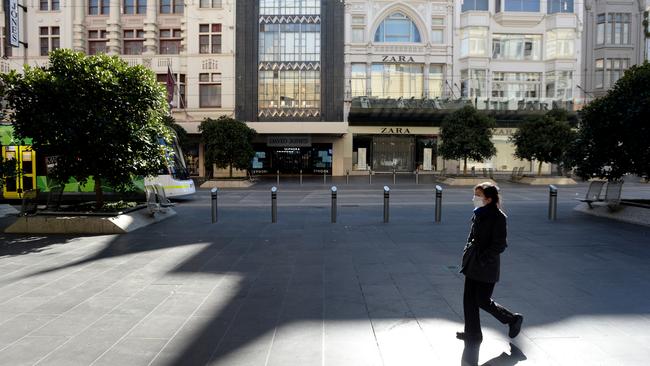
Coronavirus
Don't miss out on the headlines from Coronavirus. Followed categories will be added to My News.
The head of the nation’s peak retail body and former David Jones boss has warned Melbourne’s CBD will take a decade to recover from pandemic lockdowns.
Australian Retailers Association chief Paul Zahra has also cautioned that the national recovery is inextricably linked to a healthy Victorian retail sector.
“We can’t have an economic recovery unless we have a retail recovery,” he said.
Mr Zahra said there needed to be a particular focus on Melbourne CBD traders which have suffered from both lockdowns and an exodus of workers form the city centre as major companies keep workers at home.
Getting people back into the CBD in a safe way was essential, Mr Zahra said.
“The CBD will take a decade to recover – we need to get a commitment to get the workforce returning,” he said.
Over the longer-term the ARA wants the state government and City of Melbourne to organise a program of events to draw people into the heart of the city, providing it with a point of difference to suburban shopping locations.
KICKSTART VICTORIA: THE IDEAS FOR REBUILDING THE STATE
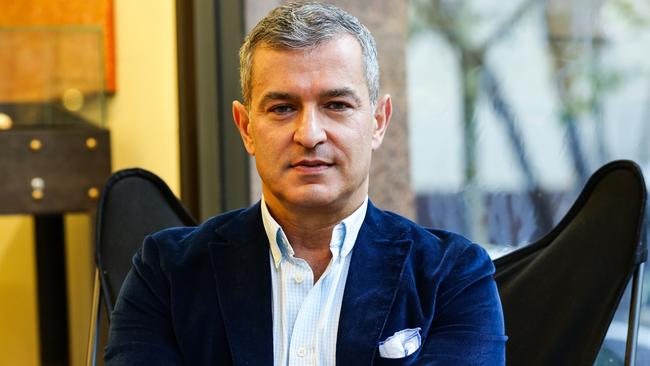
Mr Zahra said Melbourne council also needed to work with the sector to rethink the implications of the move to contactless and click and collect shopping.
“Contactless shopping and click and collect mean retailers have to rethink their floor space but it also has implications for council as to how they organise the city,” he said.
The ARA is also warning that many retailers will emerge from lockdowns with sizeable debt piles.
This would require ongoing stimulus from government and restraint from banks to navigate, Mr Zahra said.
“There is a mounting debt pile that is piling up that will be a critical issue,” he said.
“But retail isn’t a dying industry. It’s one that’s going through a rebirth and is in fact a vibrant, dynamic, innovative and resilient sector crucial to all Australians.”
HAVE YOUR SAY ON HOW VICTORIA SHOULD REBUILD
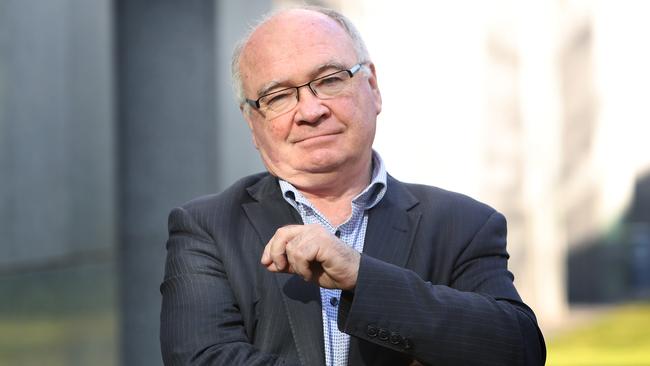
GRANTS COULD HELP SMALL BUSINESSES REBOOT
Grants to help cover the cost of closing a small business down would help many operators relaunch a new venture down the track, the nation’s peak small business organisation has suggested.
Council of Small Business Organisations Australia chief Peter Strong said it is inevitable that many good small business operators will be forced to close their operations due to the pandemic.
Ensuring they are able to access support and advice to help them through what will be a stressful and often complicated process needs to a government priority, Mr Strong said.
“Governments naturally want to focus on keeping a business going but the reality is many small businesses run by many good operators are going to close,” he said.
“But we want those owners to be able to reopen again and hire again down the track. We want them to lose in a good way if you will – they keep their house, they keep their health and in six-month’s time they come back and start another business.”
Mr Strong said small business owners should be provided with a grant to help cover the cost of using financial and legal advice to close down a business.
“The focus on allowing a business to close may sound negative but it’s something that needs to be talked about,” he said.
COSBOA also backs the idea of introducing HECS-HELP style loans for small businesses which are likely to struggle to gain funds from banks.
The loan would be provided by government with repayments triggered when certain revenue thresholds are hit.
The state government needed also to focus on providing more regional economic solutions, both within Melbourne and throughout rural and regional areas of the state, Mr Strong said.
“Victoria used to be very good at local economic development but it has gone backwards with very centralised decision making,” he said.
“What a small business needs in Brunswick will be different from what it needs in Bairnsdale.”
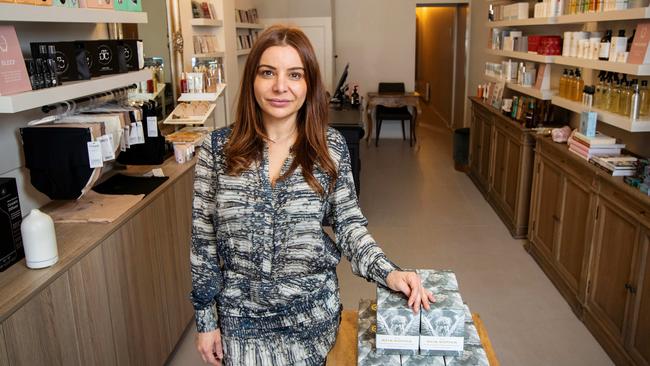
SIA’S BEAUTY SALON NOT A RISK
Beauty salon owner Sia Psicharis has stopped counting the cost to her business of the state’s lockdown.
She just wants to be allowed to open her business and is hoping pent up demand will provide a busy Christmas trading period.
“I won’t make up my losses – I’m not even focused on that,” Ms Psicharis said.
“I just want to put the pandemic behind me. I just want to be able to open. I’m trying to be positive and look forward to Christmas.”
Ms Psicharis runs the Beautyologist beauty clinic in St Kilda which has been shut to the public for all but a month since March.
The business has offered online beauty consultations and launched a new range in in-house products and treatments available online or for click-and-collect, but revenue is down 70 per cent.
Ms Psicharis said her business, which has six employees, and industry was ready and able to open up in a safe way.
But she warned requiring clients to wear a mask at all times would make it impossible to provide facials, her most popular treatment and key revenue line.
“We want people to feel safe but I don’t think our industry is a major risk,” she said.
Ms Psicharis accepted government had to make tough decisions.
But it was failing to recognise the differences between individual businesses and risks associated with each setting.
“A nail salon is a different environment to a skin clinic and there is everything in between,” she said.
“The decisions being made do not reflect that.”
‘We have to learn how to work in a pandemic. If this was to ever happen again people in my industry should be put to work in other medical settings. Keep us working. We can help and contact is important for mental health.”
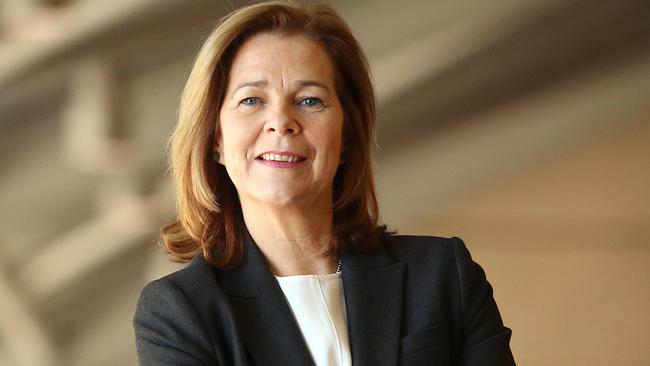
UNIONS PUSH FIVE-POINT ROAD MAP TO RECOVERY
Australia’s union movement is pushing for free childcare, 150,000 free TAFE places and major spending on community housing projects as building blocks for the economic recovery.
The Australian Council of Trade Unions has also called for the launch of a “rediscover Australia” campaign for the tourism sector while all levels of government should priorities buying Australian to support manufacturers.
The recommendations are part of a five point road map to recovery drawn up by the ACTU which it says would create or support more than 1 million jobs.
“Working people have carried us through the pandemic and we now need to see the Government use public money for public good, its essential that workers are at the centre of any recovery plan,” ACTU president Michele O’Neil said.
“We need leadership from the Morrison government in the form of strong investment which will save and create secure jobs and boost wages. The best way to restart the economy is to put money in the hands of working people.”
The plan’s first point is for free childcare and new spending to build new, not-for-profit facilities.
The ACTU also wants a massive funding injection into TAFE to support 150,000 free places and wage subsides for up to 100,000 apprentices and trainees for the life of their apprenticeship.
In tourism, the government should bankroll a series of artistic, community, agricultural, and entertainment events and pay payroll taxes for businesses providing passenger transportation and overnight accommodation services.
A national reconstruction fund should commit $30b a year towards public infrastructure in transport, community housing, cultural facilities, forest and fire management and renewable energy assets and efficiency upgrades.
The government should also develop “sustainable manufacturing clusters” around technologies including: lithium batteries, renewable hydrogen production, green primary metal manufacturing, electric vehicles and renewable energy machinery.
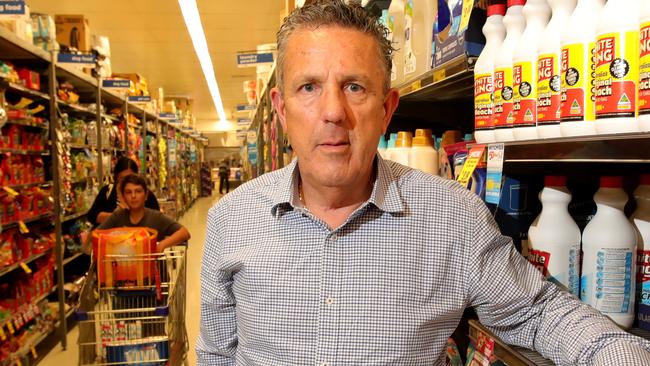
KEEP HOMEGROWN MANUFACTURING ALIVE
Victorian manufacturers hope a newfound appreciation of the importance of being able to make things locally lasts well beyond the coronavirus crisis.
The COVID-19 pandemic has dramatically highlighted how global supply chains can be thrown into disarray and the advantages of being able to make critical items such as medical supplies locally.
Pental, which makes popular cleaning products White King, Velvet, Pears, Country Life and Jiffy Firelighters from a factory in Shepparton, has experienced a surge in demand for its products since the start of the year.
While a major focus on hygiene has driven demand, Pental chief Charlie McLeish said it was clear customers were seeking out products that were made in Australia.
“There is no doubt the pandemic has highlight to many people the need to have a healthy manufacturing base,” he said.
“We’ve had a lot of support and positive feedback from both the public and from independent retailers.”
Mr McLeish would like to see a government-led advertising campaign around buying local.
He is also supportive of suggestions the federal government might uses its procurement policies to support local manufacturers.
“We still face stiff competition,” he said.
“We know that our international competitors can land their products in Australian more cheaply than we can manufacture them. We have to focus on quality.”
Australian Industry Group chief Innes Willox said the nation’s ability to pivot swiftly to cover anticipated shortages of a range of health goods and protective equipment in the early months of the pandemic highlighted the importance of having a strong domestic manufacturing capability.
As part of the state’s recovery, Mr Willox said it was critical apprentices are put back to work and programs which incentivise the hiring of young workers are expanding.
Smaller infrastructure projects that can be quickly activated should be greenlighted while super funds have a role to play in helping pay for major projects such as the airport rail link, he said.
MORE NEWS
SPENDING ON CONSTRUCTION, TOURISM, JOBS TO KICKSTART STATE
THE IDEAS FOR REBUILDING THE STATE AFTER CORONAVIRUS
HOW VICTORIA WILL LOOK IN 2021
FORMER LEADERS UNVEIL BOLD PLANS TO GET STATE MOVING
VICTORIAN FARMERS FEDERATION WANTS REGIONS BUILT UP
CHEAP ENERGY TO KICKSTART VICTORIAN MANUFACTURING
